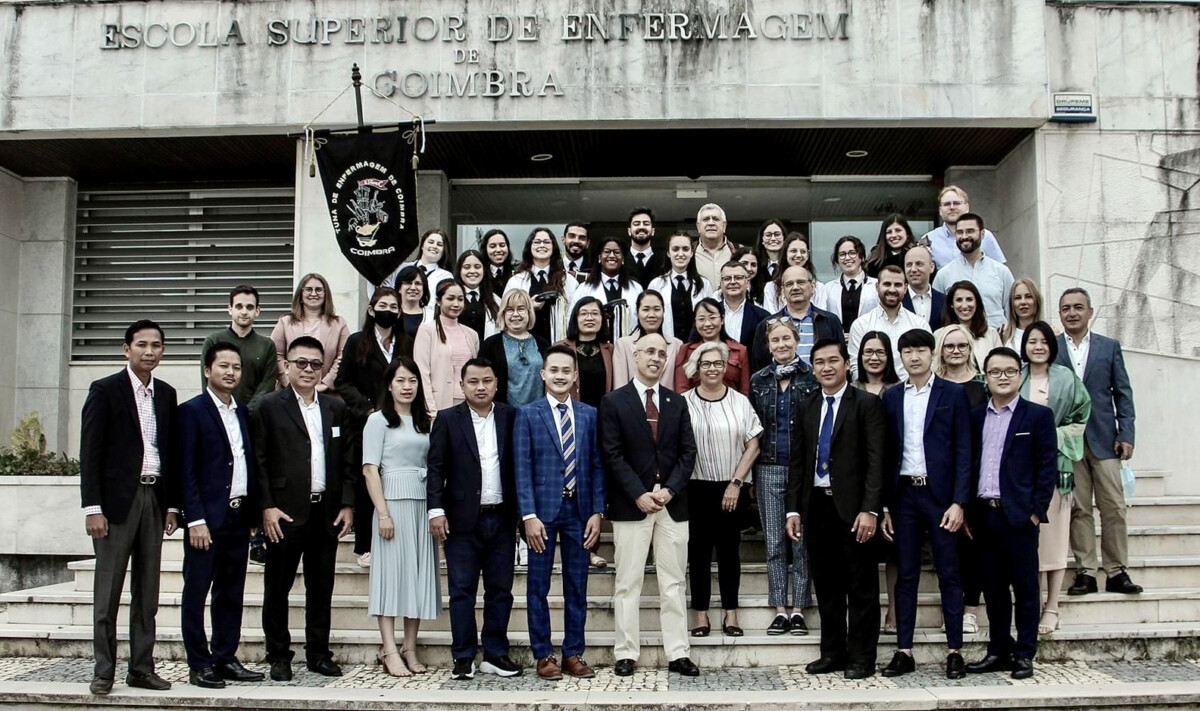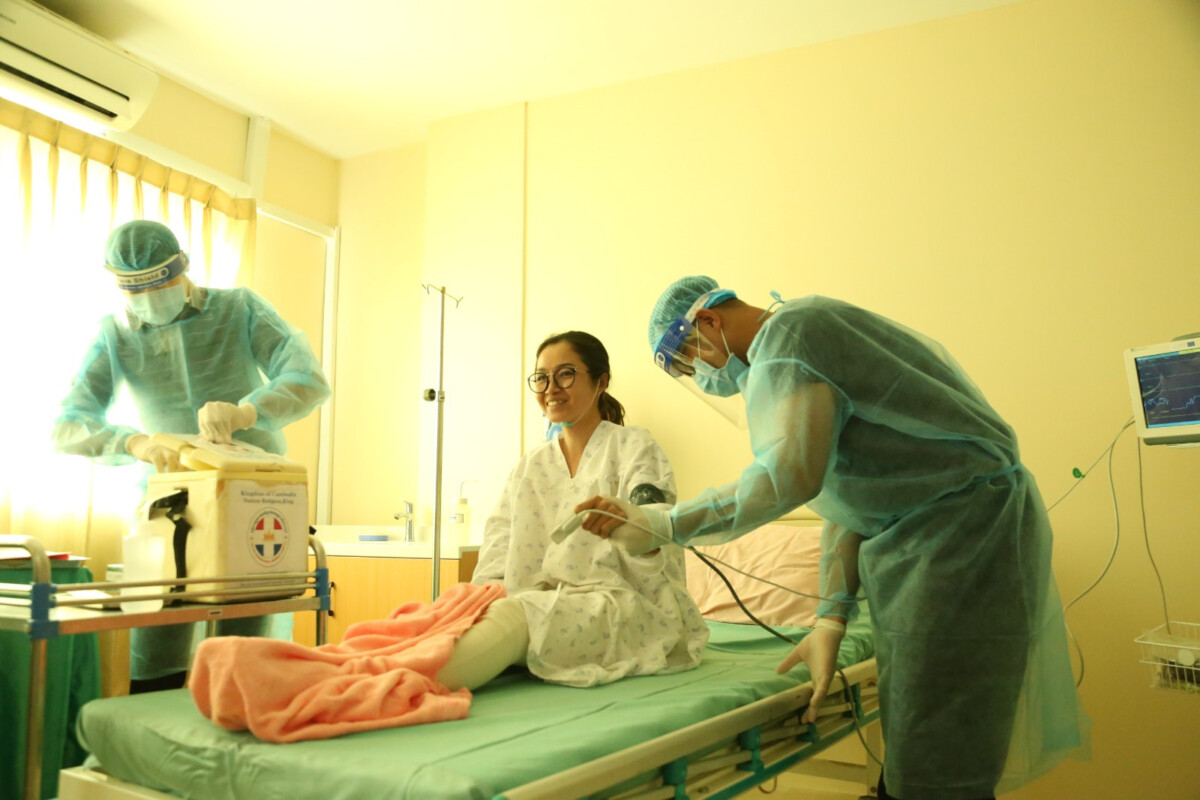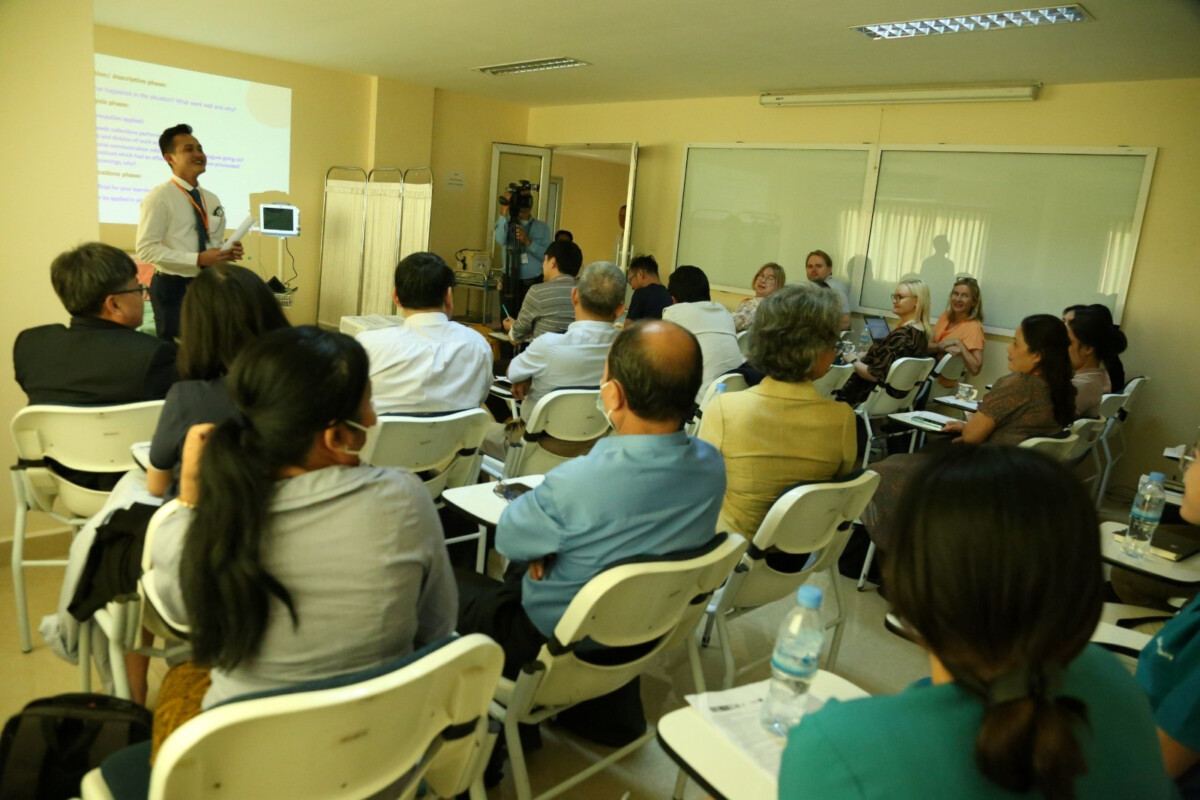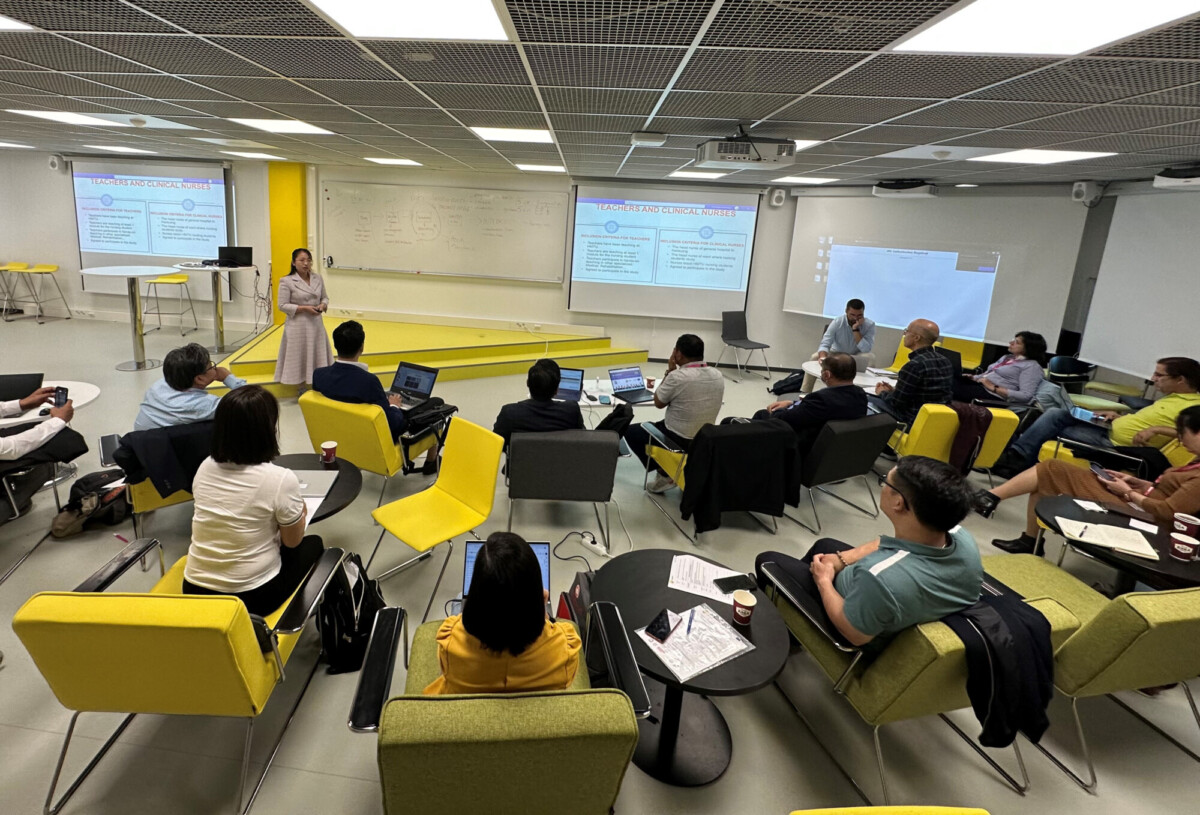
Savonia Article: Enhancing Healthcare Associated Infections (HAI) Education in Asia with Simulation pedagogy
#SavoniaUAS
Introduction
Healthcare Associated Infections (HAI) pose a significant risk to patient safety worldwide, particularly in developing countries like Vietnam and Cambodia, where they contribute to increased morbidity and mortality (Ling et al. 2015; Phu et al. 2016). To address this issue, it is important to provide the Asian nurses and nursing students with evidence-based educational materials and pedagogical methods that emphasize effective infection prevention and control strategies (Kim et al. 2020; Silén-Lipponen et al. 2022). This is the reason why the PrevInf-project was initiated. In this blog, we share the highlights, challenges, and insights gained during our efforts to support the Asian colleagues in their development journey, particularly with simulation pedagogy.
The Previnf-project aims
The Erasmus+ funded PrevInf-project was initiated in 2021 and is led by the Portuguese Nursing School of Coimbra and Savonia University of Applied Sciences. The project aims to improve HAI prevention and control competence among Asian nurses and nursing students by enhancing the pedagogical methods of two universities in Vietnam (Nam Dinh University of Nursing and Hai Duong Medical Technical University) and in Cambodia (International University and Bolyno Institute).
The project strives to empower the Asian universities and their faculty to incorporate scenario-based simulation pedagogy into their HAI curriculum. Despite having only minor prior experience with simulation pedagogy, these universities have embarked on a significant pedagogical shift, with the guidance and support of the Savonia team throughout the process.

Savonia’s support for Asian partners in simulation pedagogy development
As part of our collaboration, each of the Asian partners successfully designed and implemented three HAI simulation scenarios. The development of these simulation scenarios was a collaborative effort, with Savonia team providing support and guidance and Asian partners learning a new pedagogical approach, developing the simulation scenarios, and facilitating them into practice.
The guidance process started with online presentations on simulation pedagogy and was further reinforced by our provision of instructional videos and written guidelines to enhance their understanding and facilitate effective implementation.The process involved many online meetings to develop all the 12 simulation scenarios. Furthermore, in the transnational meetings several hands-on simulation practice sessions provided valuable experiential learning opportunities for the partners. Finally, the Asian partners piloted the simulation scenarios with their students, and the feedback and experiences collected was undoubtedly important for them. In the final stage, the Asian partners will integrate the simulation pedagogy into their nursing curriculum.

The highlights and challenges in developing simulation pedagogy in Asia
We have observed the Asian partners ability to learn and apply simulation pedagogy in to practice. Integrating simulation pedagogy into their curriculum has been a major task for them, requiring extensive effort and dedication. The preliminary results regarding the perceptions of Asian teachers and students on the suitability of simulation pedagogy are encouraging. According to the experiences gained so far, it seems that the Asian teachers understand the pedagogical prerequisites of simulation; they know how to plan scenarios, instruct students to familiarize themselves with preliminary materials, encourage students to work in simulations and guide encouraging debriefing. The collaboration has also given us new perspectives and understanding of different cultures and how they influence the adaptation of simulation pedagogy. The deep appreciation conveyed by our partners has been gratifying, reinforcing our belief in the significant impact of our collaborative efforts.
Despite the successes, the journey didn’t happen without confronting challenges. The first and most obvious challenge was the geographical distance accompanied by a significant time difference of 6 to 7 hours. Consequently, we had to use mainly online connections in collaborating. The impact of COVID-19 pandemic further emphasized the need for virtual communication, preventing face-to-face meetings for an extended period. Simulation pedagogy, being quite a complex pedagogical method, presented difficulties in effectively conveying all the necessary information to our partners. Nonetheless, we stayed innovative and found strategies to overcome these challenges. For instance, we produced a variety of video materials to help the partners understand different pedagogical and practical aspects of simulation. Additionally, we supplied them with different learning resources and recorded every online guidance session, ensuring our partners could review them at their convenience, thereby facilitating deeper comprehension of the material.
Language barriers also posed a challenge as English proficiency varied among our partners. Also, the lack of a common cultural background sometimes made it challenging to understand our different realities. Furthermore, another complex challenge emerged from the reality that our nursing practices differ between our continents, thus creating an added layer of complexity. The presented challenges were addressed through patience, open communication, and our shared commitment to the project.

Insights into the integration of simulation pedagogy to developing countries
Through our efforts assisting partners in establishing simulation pedagogy in their universities, we’ve gained valuable insights, which also pave the way for more effective implementation of such pedagogical methods in other developing countries in the future. Initial stages require investment in resources, such as simulation facilities and manikins, followed by comprehensive training for faculty members and students on this new pedagogy. Adjustments to the curriculum are necessary to align simulation scenarios with course objectives. Simulation pedagogy also challenges educators to shift away from traditional pedagogical approaches and embrace a new kind of mindset. While resources and infrastructure play a crucial role, the success of implementing simulation pedagogy also depends on the readiness of individuals and universities to embrace this pedagogical transformation, comprehend its potential benefits, and adapt to the shifts it brings to traditional educational practices. Furthermore, recognizing and considering cultural aspects is important for the successful integration of simulation pedagogy.
Throughout the guiding process, we pondered on how simulation pedagogy would align to the cultural norms and educational practices in Asia. And one of the main insights we have made during the process is that simulation pedagogy is similarly suitable for Finnish and Asian students. For example, there are certain infections prevention practices and potential errors that occur regardless of country, culture, or economic resources, like following correct hand hygiene practices. These errors can be avoided by understanding the underlying reasons behind them and committing to reflective thinking and deep learning. It’s been fascinating to observe how Asian teachers and students share similar perspectives and aspects about simulation learning, mirroring their counterparts in Finland.
In summary, simulations offer Asian universities tremendous opportunities to enhance their healthcare and infections and prevention control education. They provide a safe and controlled environment for students to practice clinical skills, develop critical thinking abilities, and improve decision-making in realistic healthcare scenarios. Given the resource-intensive nature of simulation pedagogy, the question arises how the Asian partners will be able to sustain continuity after the project. However, we have full confidence that they will be able to address the challenge and to become a role model for simulation pedagogy in Asia. We are honored for being in this transformative process, which has not only facilitated the growth of our Asian partners but has also allowed us to expand our own knowledge and expertise on the field. We have gained new insights about simulation pedagogy, and about strategies to assist universities around the globe in adopting this teaching method.

References:
Phu VD, Wertheim HF, Larsson M, Nadjm B, Dinh QD, Nilsson LE, Rydell U, Le TT, Trinh SH, Pham HM, Tran CT, Doan HT, Tran NT, Le ND, Huynh NV, Tran TP, Tran BD, Nguyen ST, Pham TT, Dang TQ, Nguyen CV, Lam YM, Thwaites G, Van Nguyen K & Hanberger H. 2016. Burden of Hospital Acquired Infections and Antimicrobial Use in Vietnamese Adult Intensive Care Units. PLoS One 11(1). doi:https://doi.org/10.1371/journal.pone.0147544
Kim E, Kim SS & Kim S. 2020. Effects of Infection Control Education for Nursing Students Using Standardized Patients vs. Peer Role-Play. Int. J. Environ. Res. Public Health 18(1). doi:https://doi.org/10.3390/ijerph18010107
Ling ML, Apisarnthanarak A, Madriaga G. 2015. The burden of healthcare-associated infections in Southeast Asia: A Systematic Literature Review and Meta-analysis. Clinical Infectious Diseases 60(11), 1690–1699. doi: https://doi.org/10.1093/cid/civ095
Silén-Lipponen M, Koponen L, Korhonen U & Myllymäki M. (2022). Using a Massive Open Online Course (MOOC) to promote infection prevention and control learning in healthcare education. International Journal of Infection Control, 18. https://doi.org/10.3396/ijic.v18.21667
Authors:
Mikko Myllymäki, Senior Lecturer, MSc, RN, Savonia University of Applied Sciences, Department of Health care, mikko.myllymaki@savonia.fi
Marja Silén-Lipponen, Principal Lecturer, PhD, Savonia University of Applied Sciences, Department of Health care, marja.silen-lipponen@savonia.fi
Leena Koponen, Senior Lecturer, MSc, RN, Savonia University of Applied Sciences, Department of Health care, leena.koponen@savonia.fi
Ulla Korhonen, Senior Lecturer, MSc, BLS, Savonia University of Applied Sciences, Department of Health care, ulla.korhonen@savonia.fi